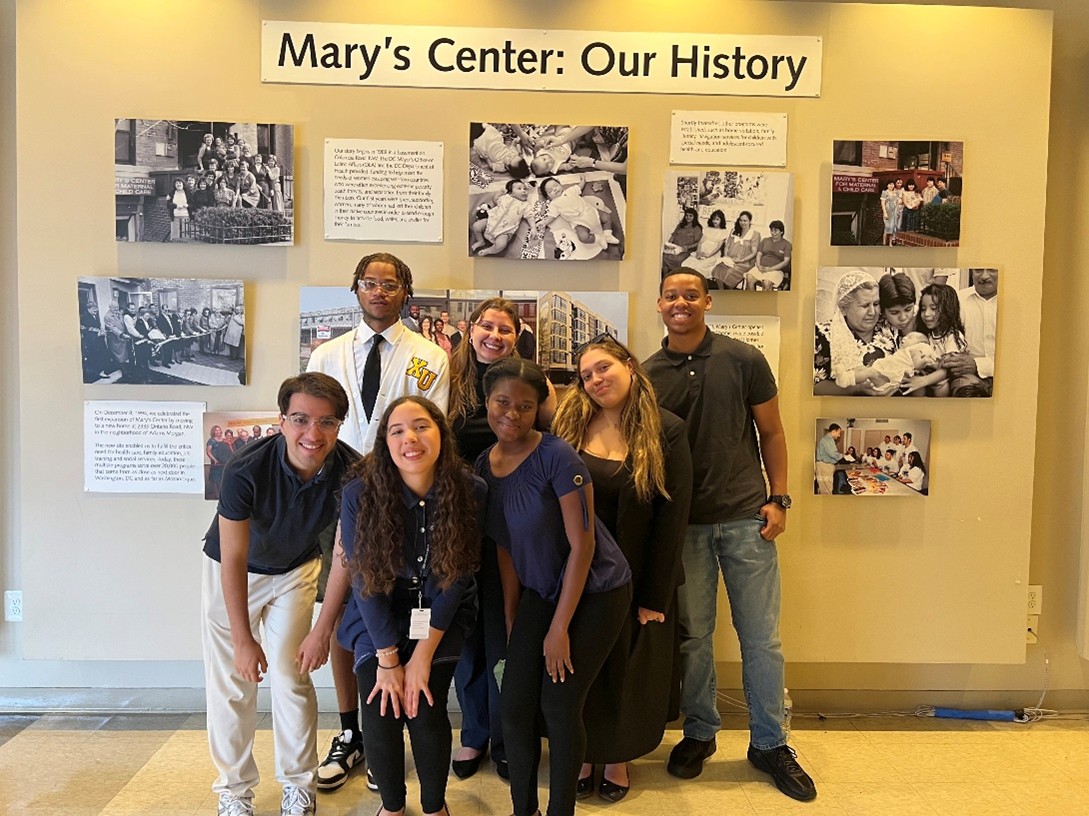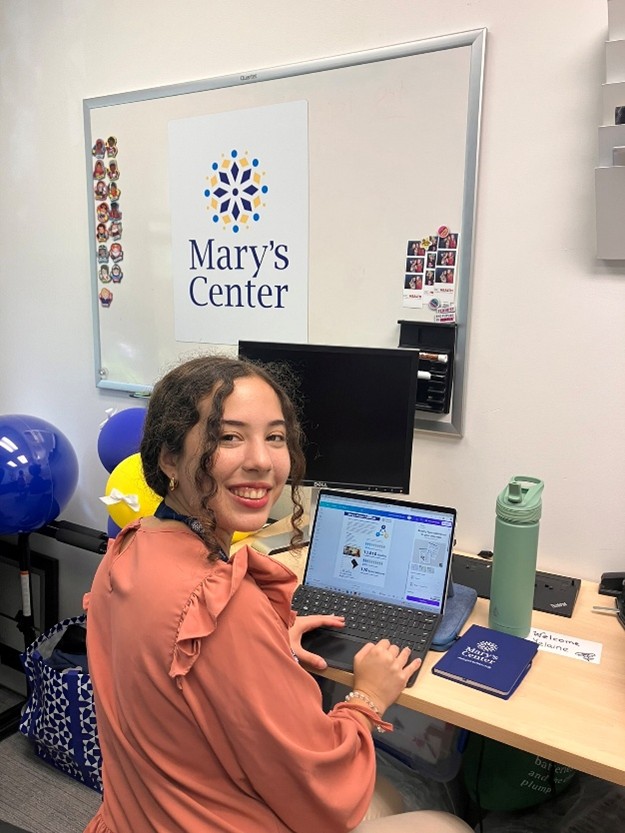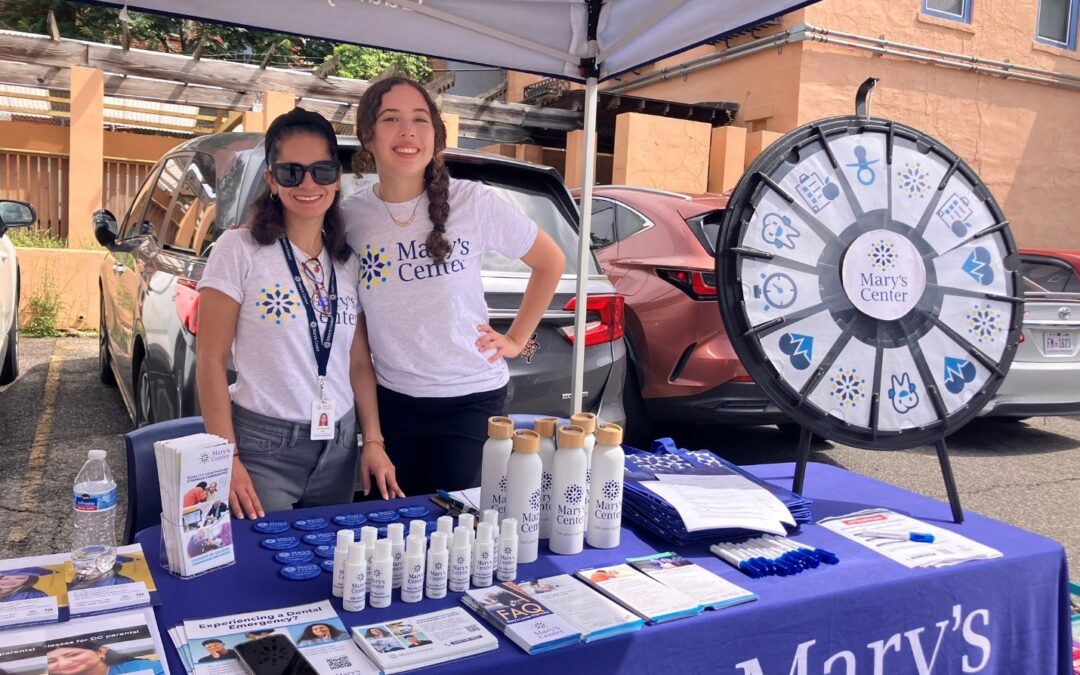My first time hearing about Mary’s Center was after I’d been chosen as a Karel Fellow. As I looked at their website, I was overwhelmed. They offer behavioral, medical, social, and educational services? I thought. How could this work? A part of me was excited to learn about health and healthcare services, and a part of me was afraid: How would I navigate a business model I wasn’t familiar with?
And of course, the quintessential fear when faced with exploring a topic I didn’t know much about kicked in. Would I be interested in what I was communicating?
I remained positive while these fears rested in the back of my mind, telling myself there was a reason I’d been matched with Mary’s Center. I would learn something new, maybe even find a new passion. I came into my first meeting with my supervisors with a smile on my face, eager to learn.
And learn I did. The first thing I found out is that Mary’s Center is not your typical healthcare center. In addition to medical care, it offers social and educational services. Mary’s Center’s offering such a vast range of care coincides with its social change model. The ultimate goal of the model is to integrate services so that its patients, many of whom are low-income and in need of various healthcare resources, simultaneously can receive care while saving time and money.
I saw this model in action during the end-of-school-year event I attended for the educational branch, or close partner of Mary’s Center, known as Briya Public Charter School. Briya provides early childcare, English classes, and job training to families. The idea is that as parents learn skills vital to their future careers, their children have a place where they can learn and play. My direct supervisor Grisel and I attended Briya’s end-of-school celebration, ready to educate participants about Mary’s Center and health topics through a wheel-of-fortune-style game. As I asked participants questions, I noticed that some of them weren’t aware of Mary’s Center’s services despite being part of Briya. When I mentioned what we do, they gratefully took the brochures I offered. They then proceeded to the table next to us, learning how to receive healthcare with Mary’s Center.
From then on, I started understanding the social change model. One thing led to another; if a recently immigrated mother went to Briya for English classes and then entered the clinic to get a check-up, it would save her another missed day at work. If the same mother could also come in for her kid’s annual checkup, it saved time – and money.

At my AMA (Ask Me Anything), where Karel fellows came to learn about what we do and ask questions, I was nervous. Not because I hadn’t learned what Mary’s Center does over the last month through events and social media efforts, but because I wanted to prove to myself that I could consolidate and present my new knowledge. As I introduced the organization and went from place to place in the clinic, my fear dissipated. The speech came almost effortlessly. My immersion at community events and through making social media posts taught me what Mary’s Center does and is. I still didn’t know everything; in a month, who does? After my previous internship experiences where I sometimes pretended to know everything to my detriment, I admitted my knowledge gaps. Lyda, the Vice President of my department, immediately stepped in and helped. Someone at a networking event I’d been to said it best: When you don’t know something, admit it. We want to help.
In the end, I’ve realized it’s okay to be afraid of the unknown and necessary to ask questions. To delve into what that organization is doing. To accept a bit of information overload and be okay with not knowing everything.

The first month working with Mary’s Center has humbled and empowered me. I’ve been able to work on my weak points and taken ownership of my strengths. I also realized that a lack of knowledge doesn’t have to correlate with a lack of passion. Instead, I’ve added accessible healthcare to the list of issues I care about.

